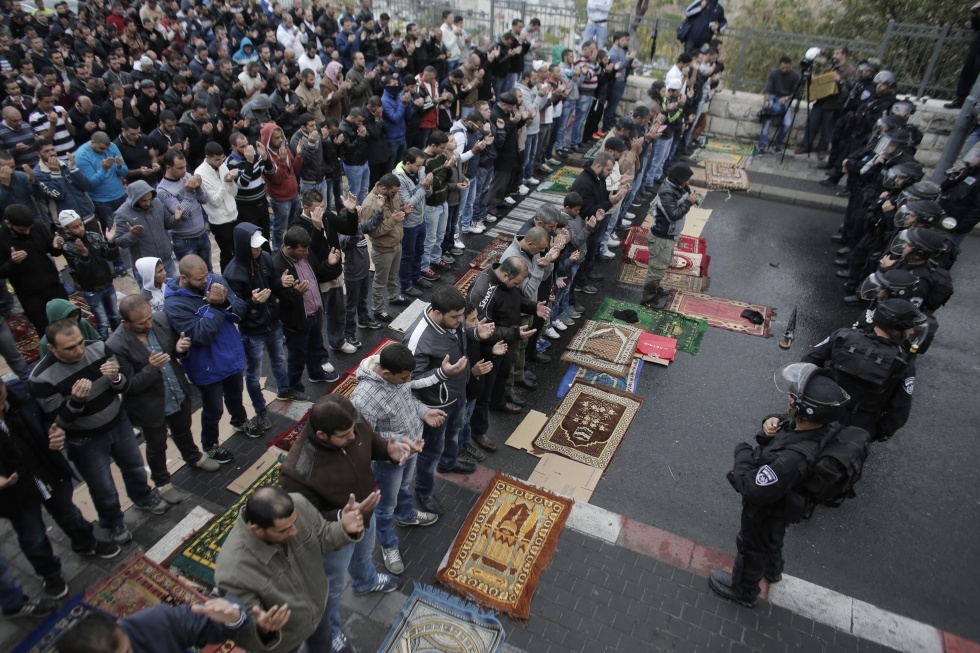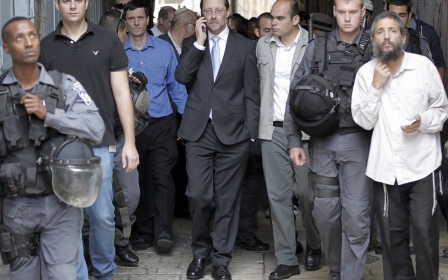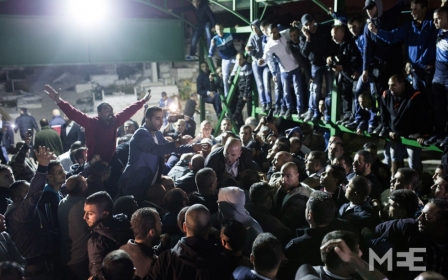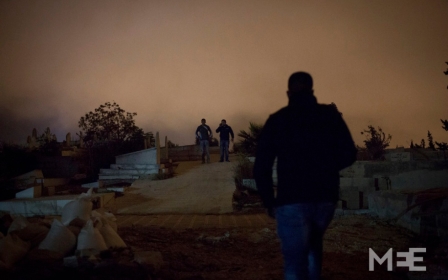Report: Netanyahu holds secret meeting with Jordan's king over Jerusalem tension

Israeli Prime Minister Benjamin Netanyahu secretly met Jordanian King Abdullah II Saturday to discuss rising tensions in Jerusalem, a Kuwaiti newspaper reported Monday.
Al-Jarida said an “urgent meeting” had taken place at which Netanyahu agreed to stop Jews from entering the Haram al-Sharif site in Jerusalem – known as Temple Mount in Judaism.
Current Israeli law prohibits Jewish prayer in the compound, the holiest site in Judaism and home to the al-Aqsa mosque – Islam’s third holiest site.
The Kuwaiti newspaper has featured numerous reports in recent years purporting to reveal the inner workings of Israel’s prime ministerial office. Many of these reports have later proved accurate, while others have been false.
The purported meeting on Saturday came amid increased violence in Jerusalem, after Israeli police killed a Palestinian man on 30 October suspected of earlier shooting a prominent right-wing Israeli activist.
Israeli authorities briefly closed Haram al-Sharif in a move described by Palestinian Authority President Mahmoud Abbas as a “declaration of war”.
At Saturday’s purported meeting, Netanyahu was said to have promised closer coordination with Jordan’s Waqf, which manages the al-Aqsa mosque, in order to ease ongoing tensions. The Israeli prime minister also reportedly pledged to come up with new rules for tourist entry to Haram al-Sharif.
Al-Jarida said the meeting led to a statement on Saturday by Netanyahu calling for parliamentarians to reduce their rhetoric on Jerusalem. He urged MPs to demonstrate “responsibility and restraint” in relation to Temple Mount/Haram al-Sharif.
“I think that what is necessary now is to show restraint and to work together to calm the situation,” Netanyahu said. “I also ask that private initiatives be avoided as well as unbridled statements.”
“We are committed to the status quo for Jews, Muslims and Christians.”
However, on Monday, Israel reportedly approved plans for 500 more settlement homes, slated to be built in Occupied East Jerusalem.
"The... decision on the 500 homes in the Ramat Shlomo settlement come after Prime Minister Benjamin Netanyahu's announcement last week that he would accelerate construction in east Jerusalem," Peace Now spokeswoman Hagit Ofran said.
Netanyahu's office pledged on 27 October to build more than 1,000 new settler homes - more than 600 in Ramat Shlomo and around another 400 in Har Homa, another east Jerusalem settlement.
Deputy Speaker of the Knesset, Moshe Feiglin also raised tensions on Sunday when he visited Temple Mount/Haram al-Sharif to reiterate his demand for Jews to be allowed to pray at the site in Jerusalem’s Old City.
Neither Israeli nor Jordanian officials have confirmed the accuracy of Al-Jarida’s reporting, although the article did cause President Abbas to release a statement praising Netanyahu’s attempts to ease tensions.
King Abdullah did speak publicly on Sunday about the Jerusalem fallout, promising to protect the city’s holy sites.
“Jordan will continue to confront, through all available means, Israeli unilateral policies and measures in Jerusalem and preserve its Muslim and Christian holy sites, until peace is restored to the land of peace,” he said.
Jordan, which administered East Jerusalem and the West Bank before Israel seized the Palestinian territories in the 1967 war, has responsibility for holy sites in the Israeli-annexed eastern part of the city.
Jordan's status as custodian is enshrined in its 1994 peace treaty with Israel.
New MEE newsletter: Jerusalem Dispatch
Sign up to get the latest insights and analysis on Israel-Palestine, alongside Turkey Unpacked and other MEE newsletters
Middle East Eye delivers independent and unrivalled coverage and analysis of the Middle East, North Africa and beyond. To learn more about republishing this content and the associated fees, please fill out this form. More about MEE can be found here.




